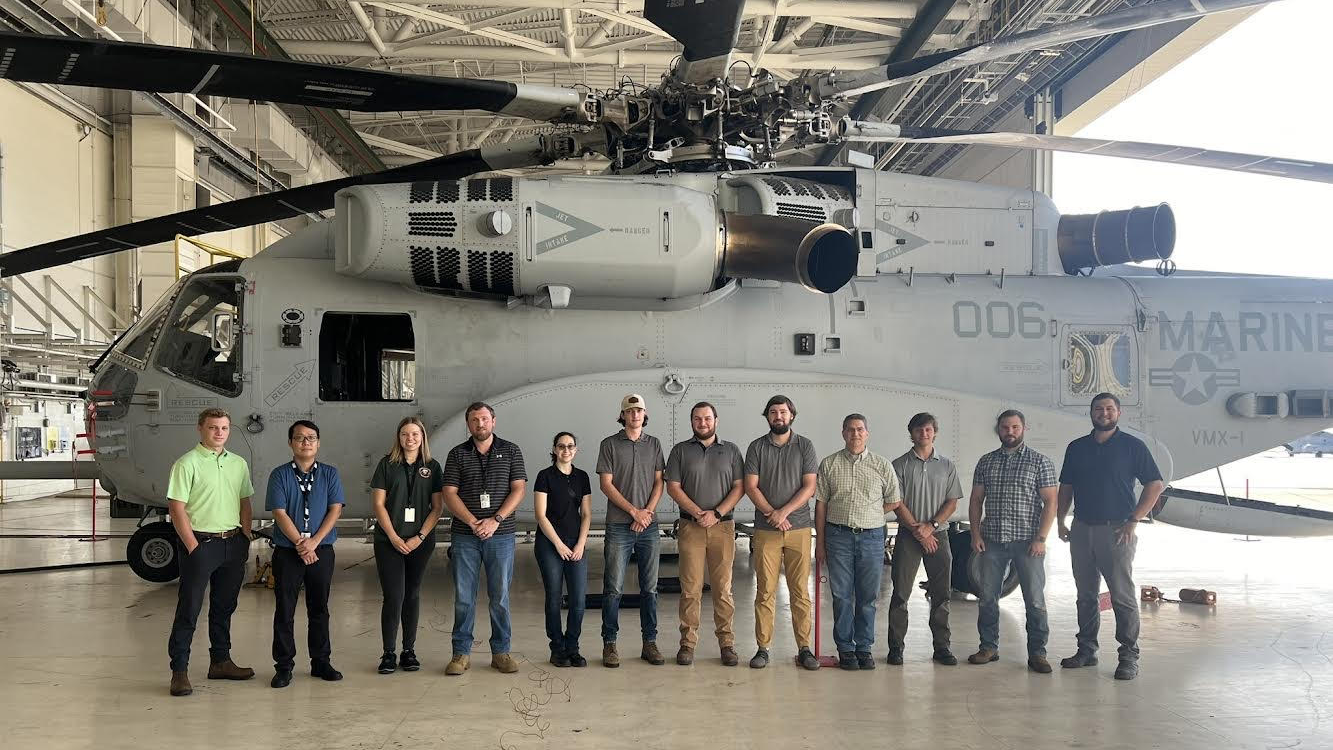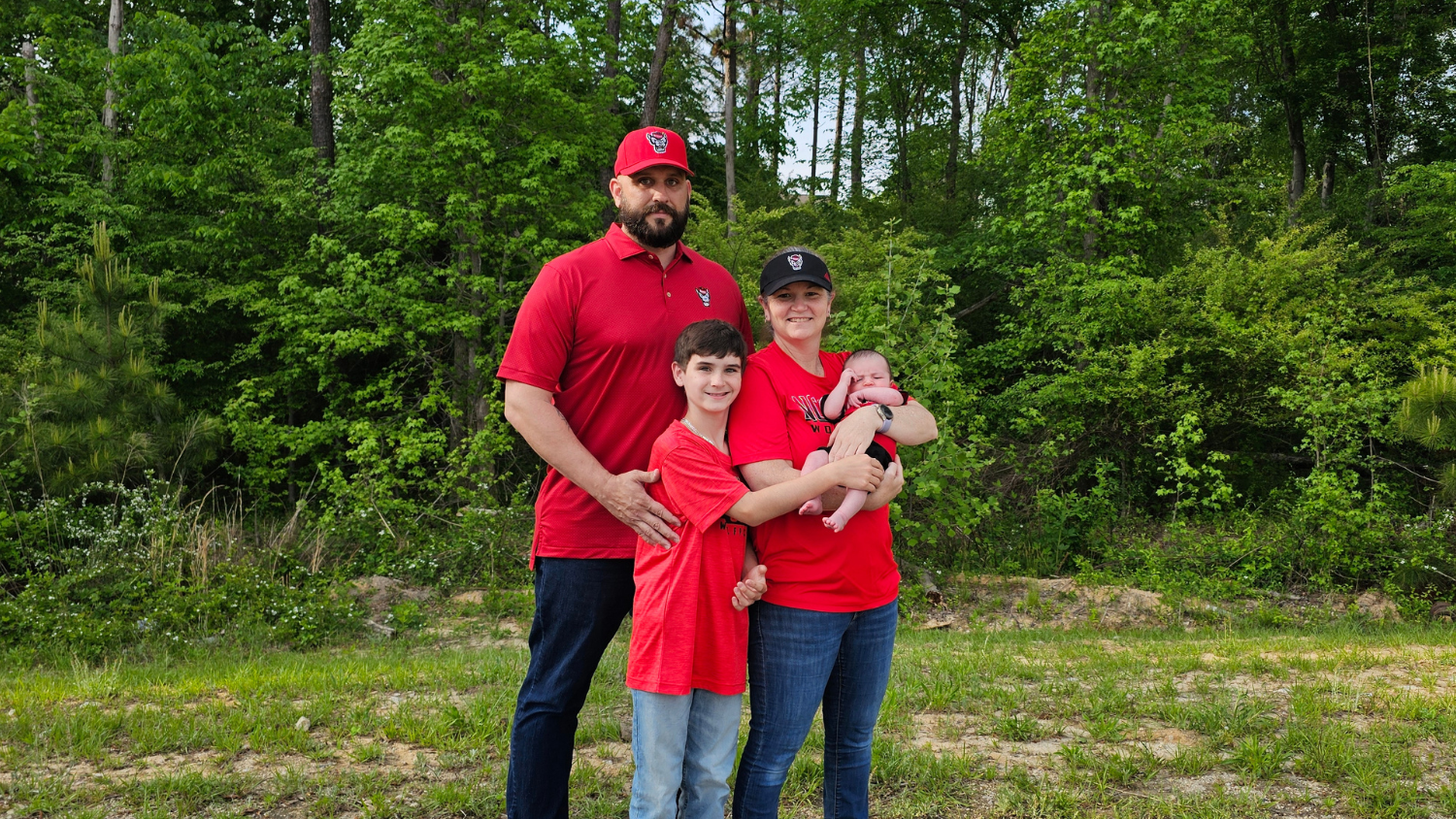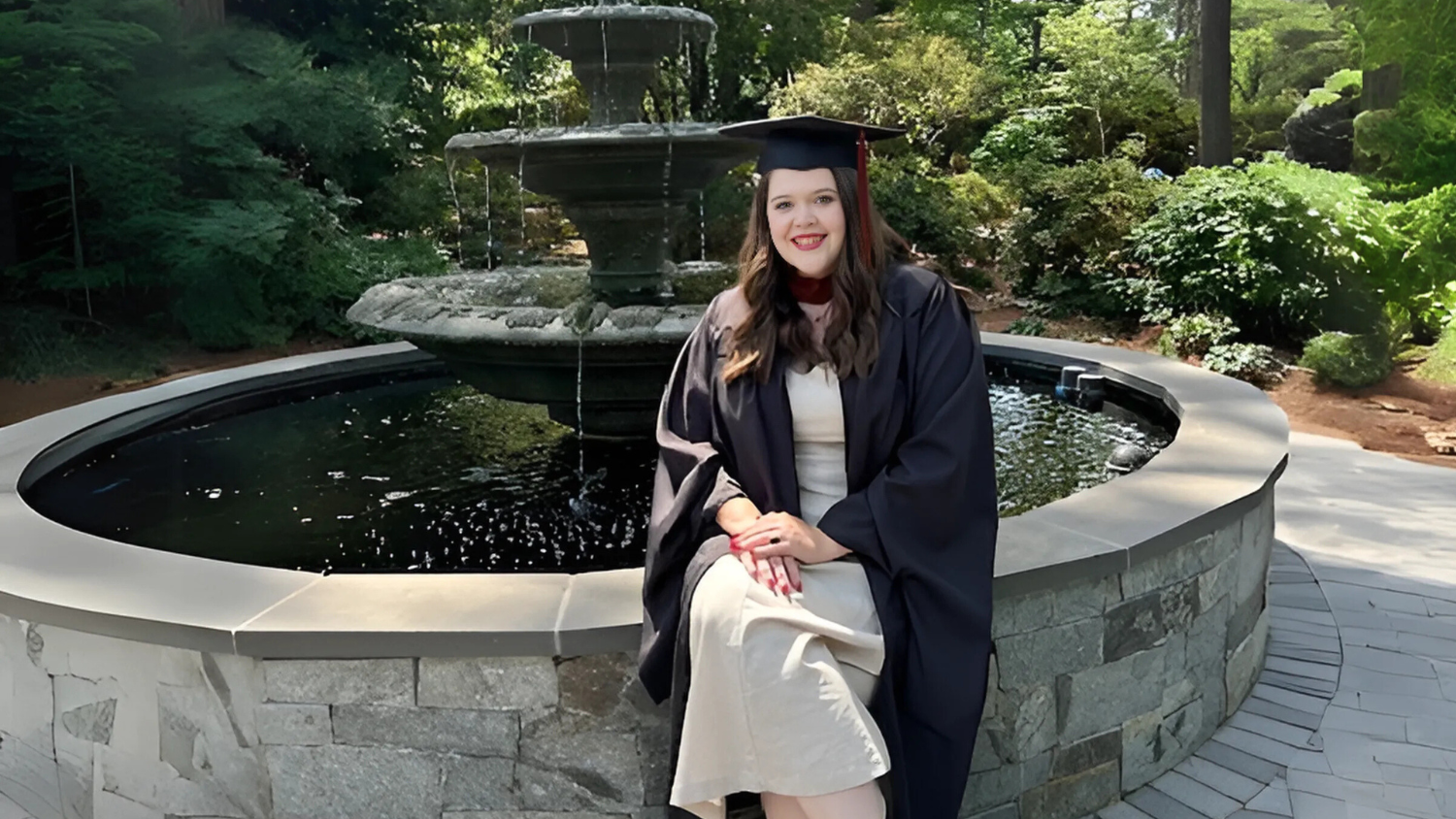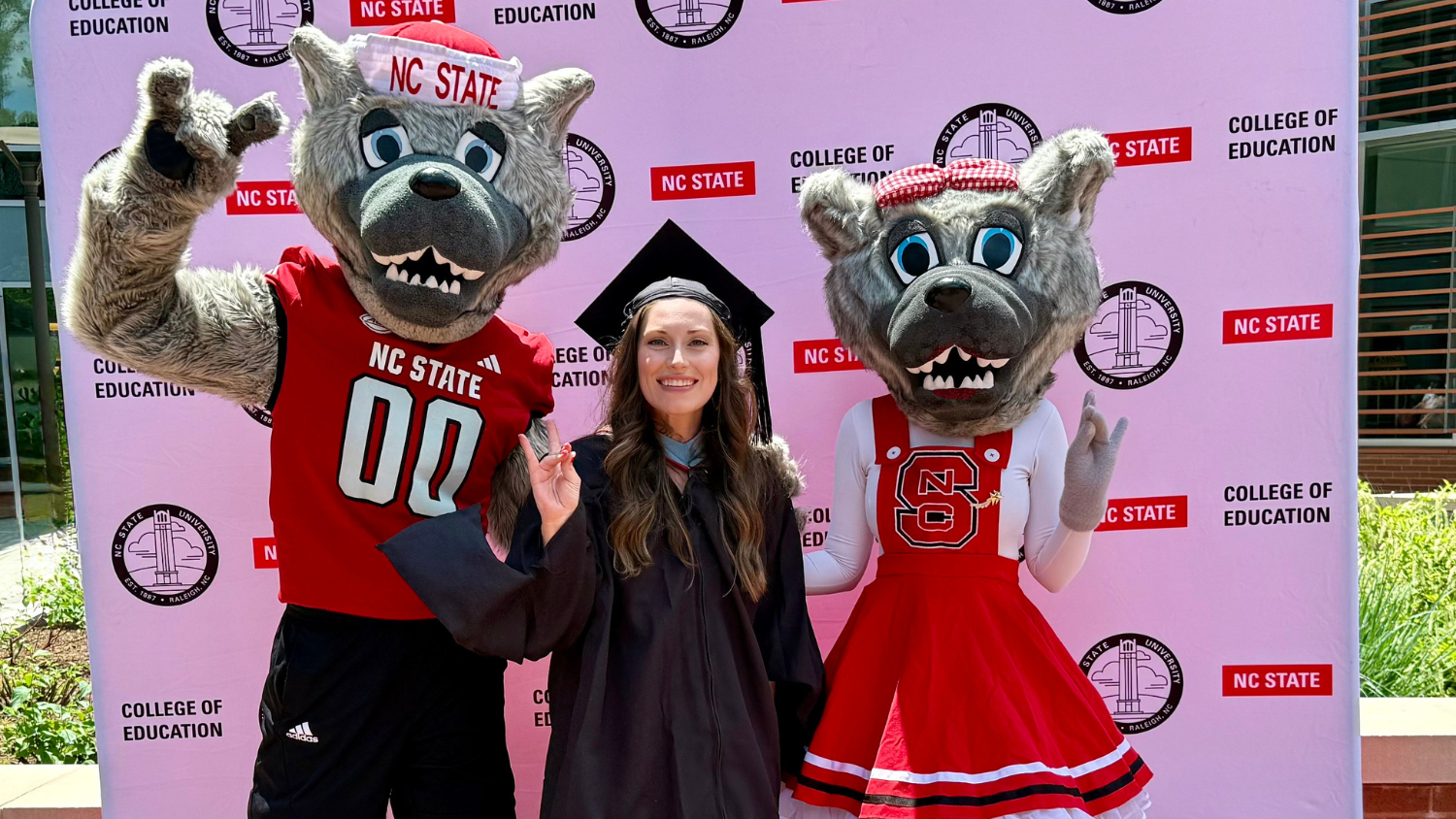NC State’s Havelock Site-Based Mechanical Engineering Systems (MES) Bachelor of Science in Engineering program got its start in 2004 to meet the needs of non-degreed engineers in eastern North Carolina. Specifically, employees of the Naval Air Systems Command Fleet Readiness Center East (FRC-E) looking to advance their careers could earn the credentials they needed — without having to leave the area or quit their jobs.
Based in Havelock, North Carolina and part of Marine Corps Air Station Cherry Point, the FRC-E aviation and maintenance facility is the largest industrial employer east of Interstate 95, employing more than 1,000 engineers.
“The Havelock MES program vision was to grow their own engineers,” for FRC-E, said Bill Fortney, director of the program and teaching assistant professor in mechanical engineering. “The College of Engineering saw this vision as supporting the mission of NC State as a land-grant institution.”
Thanks to interactive video conferencing technology, students in the program have access to the same world-class engineering faculty, lectures and lab experiences as Raleigh-based students. The program has a machining lab in which students can gain hands-on experience, practice troubleshooting scenarios and work on data analysis.
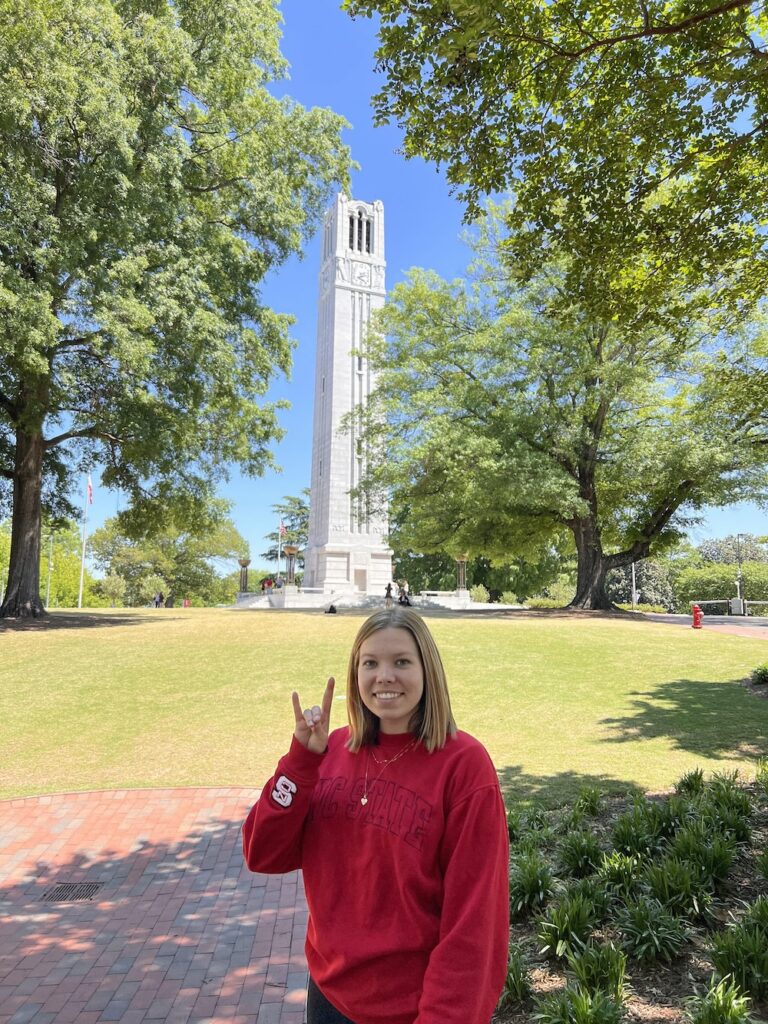
The program attracts a diverse cohort of learners, including many first-generation college students, nontraditional adult learners and veterans. And, approximately 90% of MES program graduates stay employed locally.
First-generation college graduate Savannah Tabor was one of those learners. A native of rural Pamlico County, near Havelock in coastal North Carolina, Savannah developed an interest in engineering in her high school drafting and chemistry classes.
“I knew I wanted to make a career in engineering,” Tabor said. And through the NC State site-based Havelock MES program, she’s doing just that.
Site-based Learning Keeps Students Rooted
Channeling her interests into action, Tabor applied for and was awarded a paid summer internship with FRC-E as an unmanned aerial systems support equipment engineer intern.
No scooping ice cream or slinging popcorn for her: Tabor would spend the summer after high school supporting the Marine Corps’ national defense mission.
“If I wanted to stay local, FRC-E had plenty of engineering career opportunities,” she said. After considering her longer-term options, Tabor enrolled in the 2+2 Engineering Transfer Program, a partnership between NC State and Craven Community College in New Bern. The plan was to move to Raleigh for the last two years of her studies.
Soon after she started at Craven, her supervisors at FRC-E made Tabor an auspicious offer: an extension of her internship for the entire duration of her undergraduate studies along with available tuition assistance for the Havelock site-based MES program.
That is, she could earn an NC State bachelor’s degree in engineering with tuition assistance, simultaneously gaining nearly five years of valuable work experience and honing her leadership skills, while staying close to her family and friends in a region of the state that she adores.
It was an easy decision.
“After meeting with Dr. Fortney to learn more, I knew I could reach my goal of becoming an engineer and — best of all — without leaving home,” Tabor explained. “With its small classes, family-like atmosphere and hands-on learning experiences, NC State’s MES site-based program was the right fit for me.”
Fortney agreed: “None of these great things would have happened for Savannah without the local site-based option supported by NC State distance education.”
Eastern Appeal
Tabor has been offered a full-time engineering position at FRC-E after graduation, and she couldn’t be happier about it. “I see myself there well into the future, applying my engineering training and experience to support our U.S. Navy and Marines,” she said.
In addition to the outstanding education she received, Tabor credits her success and positivity to her supportive community and small-town pride. “I love eastern North Carolina,” she said. “I love the community, the beach, being on the water, hunting, my family and being plugged into the workforce in and around Havelock.”
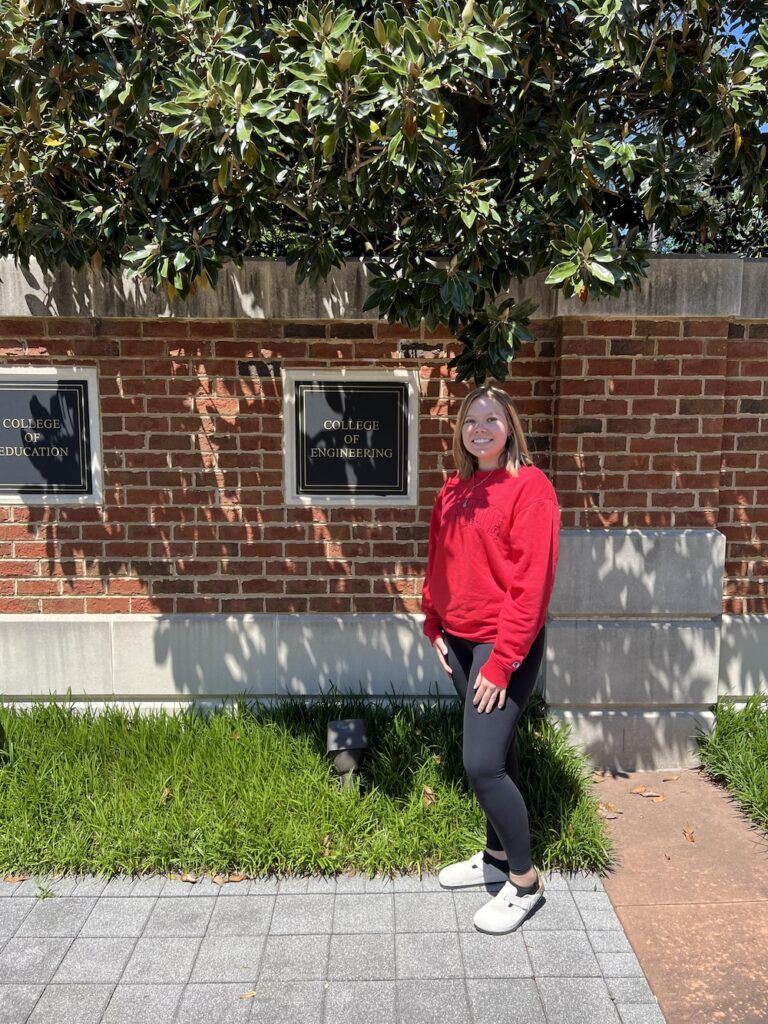
Enjoying outdoor recreation and maintaining a good work/life balance have been easy given Tabor’s proximity to both her classes and her work. Her internship schedule has been flexible, allowing her to prioritize her studies. Now that she’s completed her degree, she looks forward to celebrating at NC State commencement in Raleigh and at Havelock’s local celebration, and perhaps doing some traveling this summer.
Her college experience was so beneficial to her career, and the support of Fortney and other teaching faculty so helpful, that she wants to support local outreach efforts on behalf of her alma mater.
“I want to ensure that students from my hometown high school are aware of the great NC State degree opportunities in engineering at Havelock,” she explained. “The programs there are wonderful.”
Interested in advancing your career with a degree in engineering from NC State? Learn more about the Havelock site-based Mechanical Engineering Systems Bachelor of Science in Engineering Program.
